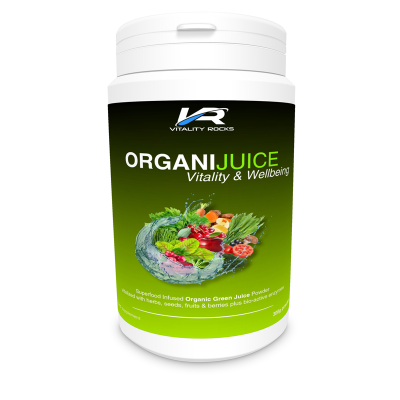It's Time to Go Organic!
Why you Should Go Organic
In 2023 signs seem to be indicating that more people are making a positive decision to choose organic foods due to environmental impact. And this is great but did you know that many more are opting to go organic for health reasons?
Let’s look at what these the reasons might be…
* One thing to note though is that going organic may not be so easy as the issue of cost may prevent certain people from trying it in the first place…or abandoning the idea totally!
However, experts recommend making as many changes as you can as this can have still have a really positive impact on overall health and help the environment too!
1 - The main reason many cite for switching to organic fruits and vegetables is pesticide use and contamination from heavy metals. There are around 12 culprits high in pesticide residue so it makes sense to start switching these out…
Strawberries, apples, nectarines, peaches, celery, grapes, cherries, spinach, tomatoes, red peppers, cucumbers and Kale.
2 - Another reason to make the change is that soil depletion due to practices like deforestation, overgrazing, intensive agriculture and construction can adversely impact soil health and how productive it is, for example, the quality of produce grown in it or animals that feed off it.
How can we be sure food is organic?
Organic farming adheres to sustainable practices and rigid testing and inspection to ensure they attain and keep the standards required to label food organic. This is regulated by an approved organic certification body like The Soil Association.
What are the standards?
An example of organic standards are -
1 - Food must be grown in soil that has had no prohibitive substances added for 3 years prior to harvesting.
2 - No irradiation, sewage slurry (containing toxic substances), genetic engineering or genetically modified organism is permitted in any part of the process.
3 - No hormones or antibiotics to be administered to livestock or feed.
4 - No artificial colours, preservatives or flavourings to be added before packaging.
If like us, you are concerned about the affect on health from foods that are grown or bred in less than ideal environments then it makes sense to try to fit organic into your lifestyle.
How can we make healthy lifestyle changes?
1 - Don’t get overwhelmed and hung up on grand, sweeping changes! Introduce organic wherever you can, maybe starting with the top 12 culprits for pesticide use.
2 - Read your labels and ensure produce has appropriate organic certification.
3 - Even though something has organic ingredients, doesn’t always make it healthy. Avoid over-processed and sugary foods. Stick to as natural as you can.
4 - Remember that buying organic helps support a sustainable future for our children and protects landscape and biodiversity including protection of pollinators like bees.
5 - If due to lifestyle and maybe economic reasons, you worry about not being able to stick whole-heartedly to an organic lifestyle then consider supplementing with an organic green superfood drink or trying a product that assists the body to remove toxins and heavy metals.



